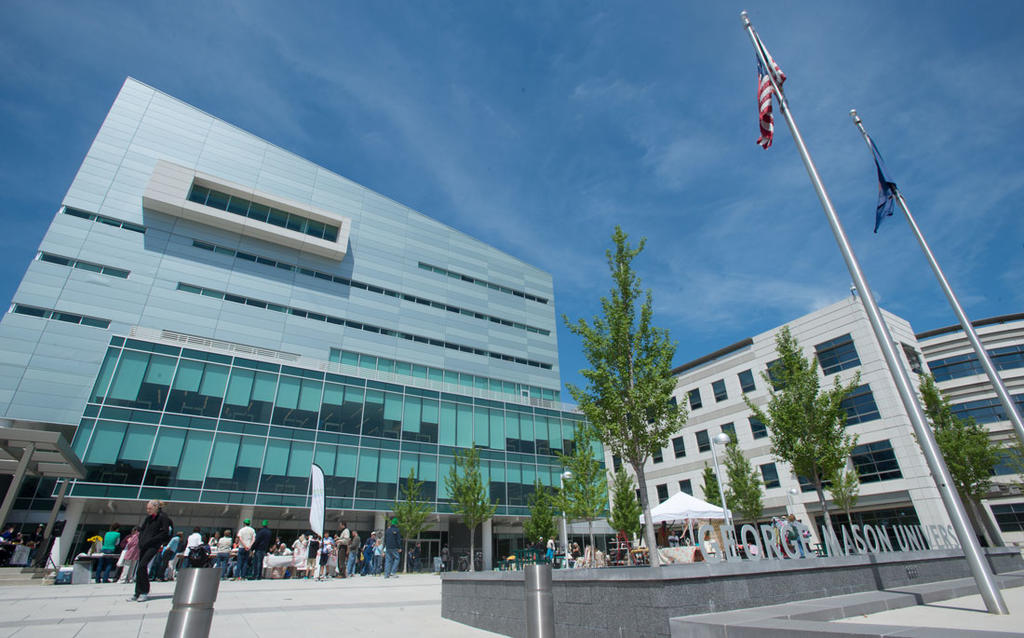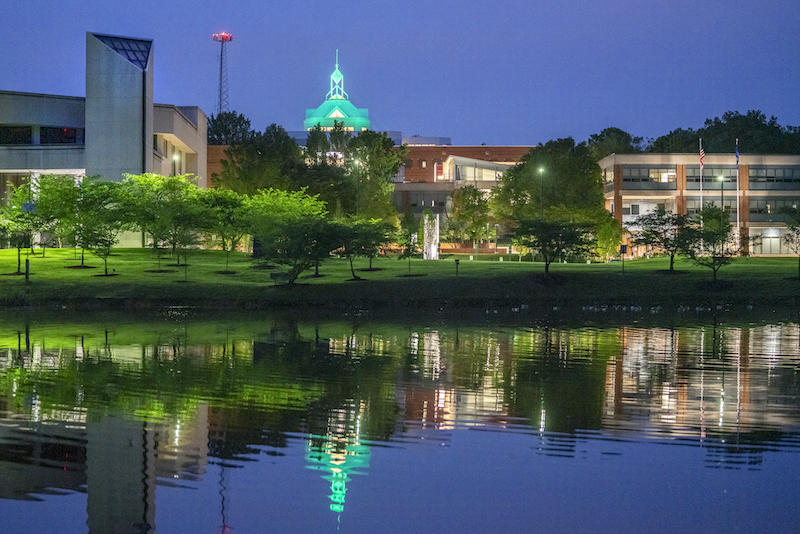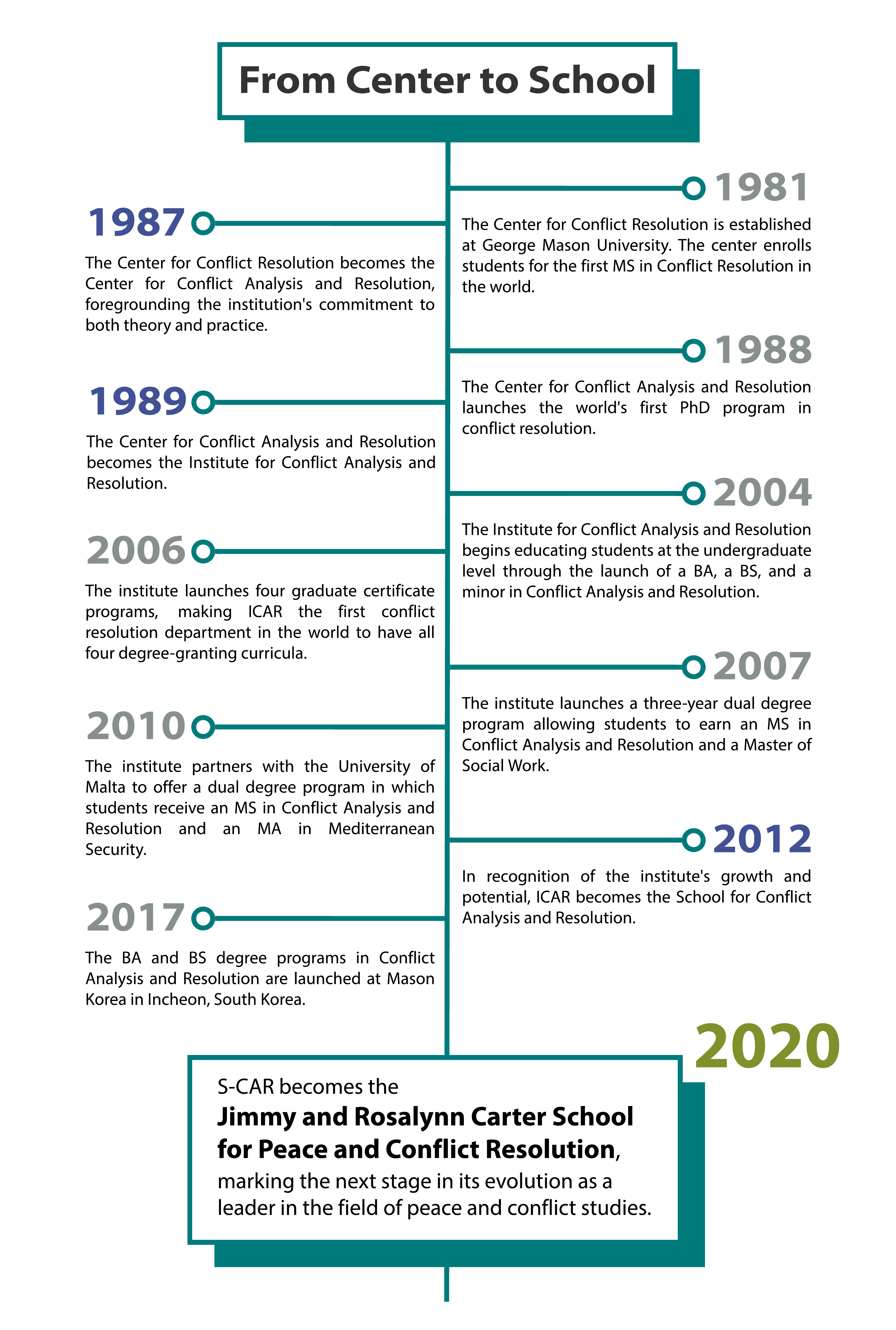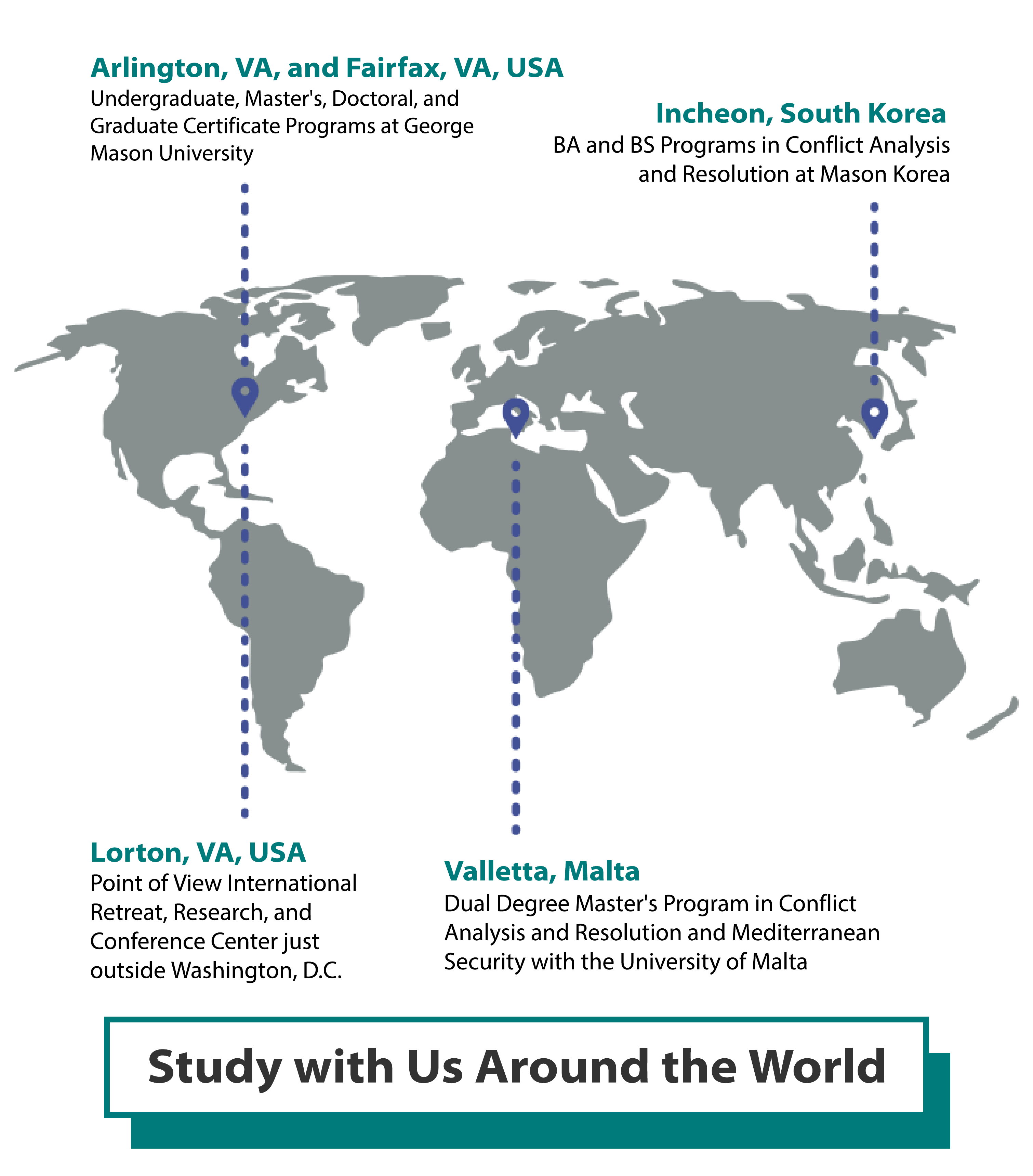Mason is celebrating its first half-century.
40 Years of Excellence
In four decades, we have developed from a center into an institute into a school, the first of our kind, and one of only two in the nation.

Graduate-level courses are typically offered at Mason Square in Arlington in the evening. Students can earn an advanced degree in field of peace and conflict studies while continuing to work.
In 1979, when George Mason University was a new and very small institution, a group of faculty from the social and behavioral sciences began to imagine what a postgraduate degree in conflict resolution would look like. No such degree existed anywhere in the world, although there were a handful of faculty researchers and a few research centers that studied aspects of peace and conflict.
That year, George Mason University proposed the world's first MS in Conflict Resolution to the State Council of Higher Education. With the council's approval, Mason enrolled the first class of students seeking Master of Science degrees in Conflict Resolution.
In the decades since, we have grown from a center to a school in recognition of the critical role that our faculty, students, and alumni have played, and continue to play, in leading change, building peace, pursuing justice.
Our school's faculty, students, alumni, and affiliates are pushing the field toward new horizons, calling upon rigorous research, reflective practice, and innovation to facilitate the peaceful and just resolution of 21st century conflicts on the interpersonal, community, national, and global levels.
Becoming the Carter School
It is upon this foundation that our school has taken the next step in its evolution with its transition from the School for Conflict Analysis and Resolution to its new identity as the Jimmy and Rosalynn Carter School for Peace and Conflict Resolution.
With this transition, we have invested ourselves in the Carter name to honor Jimmy and Rosalynn Carter's legacy of selfless dedication to peace and to encourage others to likewise commit themselves to the realization of a more just and peaceful world.
The Carters’ commitment to the peaceful resolution of conflict serves as a beacon and guide to our school as we educate the next generation of peacemakers and conflict resolvers. Our transition to the Carter School is a declaration of our position and an affirmation that we, as a school, pursue a particular set of values: compassion, humility, solidarity, a calling for social justice, and a commitment to peace.
A Comprehensive Approach to Peace and Justice
Our focus from the beginning has been the study of conflict as a social problem. When our programs were first being developed, we knew no single discipline was sufficient to encompass our goals. Thus, we understood from the start that an academic program in conflict analysis and resolution needed to be multidisciplinary, and our faculty has always reflected that philosophy.
Our school's founders and early faculty came from the worlds of both academia and practice, dedicating their knowledge and research to the formidable effort of bringing the field of peace and conflict studies into existence. Its directors and deans have ferried our school from a center housed in an office at Mason’s Fenwick Library to a school that educates students at the undergraduate, graduate, and certificate levels at four campuses (Mason’s Fairfax, Arlington, and South Korea campuses, as well as the University of Malta’s Valletta Campus) on three continents.
Throughout all four decades of our school's work in the world, our faculty, students, and alumni have carried out research and pursued practice that has helped define the field. We've written articles and books used in curricula around the world, and our PhD graduates have founded and/or staffed new programs in Conflict and Peace Studies, including the first Conflict Analysis and Resolution programs in Turkey, Colombia, and Ghana.
Our more than 2,000 alumni are engaged in pursuing the resolution of conflict around the globe, including by furthering restorative justice initiatives in public schools, leading conflict management projects, facilitating UN mediation processes, conducting groundbreaking research on conflict dynamics, and more.
From our first faculty members and students to our newest cohorts, our school has defined and shaped the field of peace and conflict studies, leading the multidisciplinary effort to address conflict through a firm commitment to cutting-edge research and practice.
The establishment of the program at George Mason University was a truly groundbreaking concept. While other institutions offered classes or specializations in conflict management, the program at George Mason stood out as a declaration that the world needed to start training people to be consummate, professional mediators beyond labor negotiations (which was the primary model at the time) and that it took more than a 40-hour training to do it.
Lewis Michaelson (ICAR MS ’85; Senior Vice President, Katz & Associates



